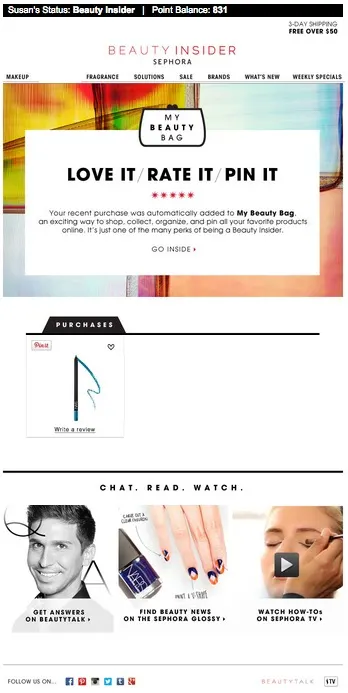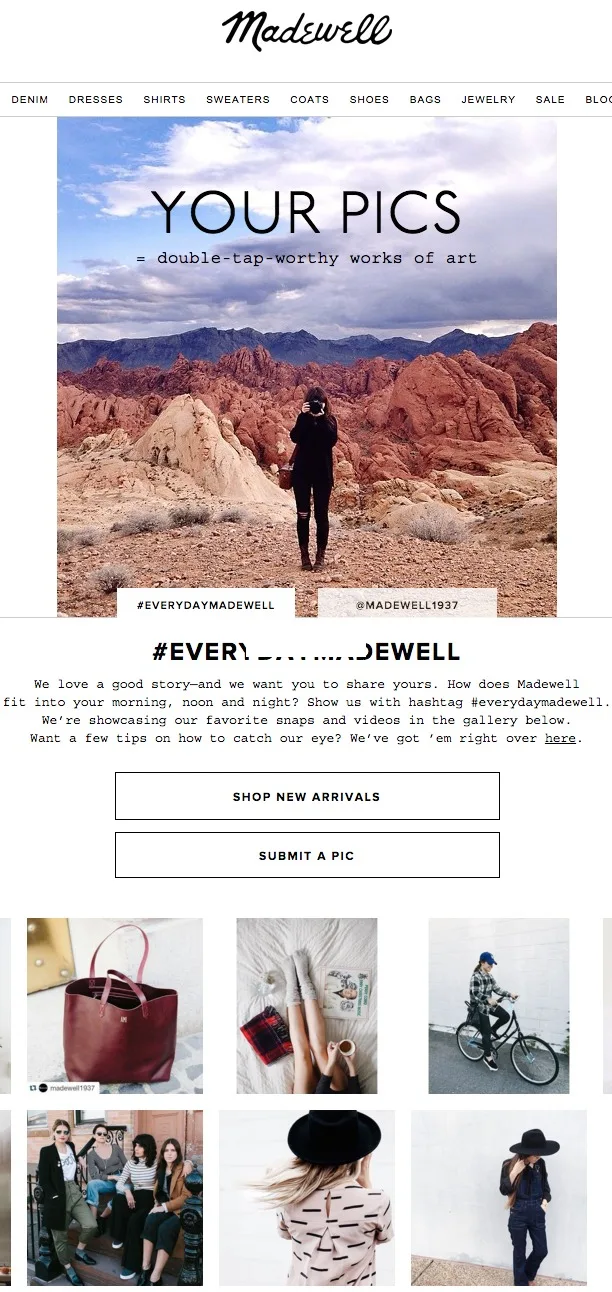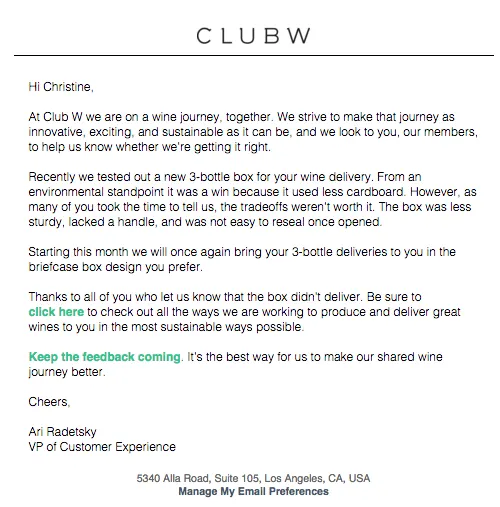The Ins and Outs of User Generated Content and How to Make it Work for Your Online Business

You can talk about the amazing benefits of your own products until the cows come home, but what you say will be taken with a grain of salt by your potential customers. If, on the other hand, someone else honestly shows and talks about the amazing benefits of your products, they’re more quickly to be believed. In fact, studies have shown that 92% of consumers trust recommendations from people they don’t know over branded content. As a merchant, this is where user generated content (UGC) comes into your arsenal.
92% of consumers trust recommendations from people they don’t know over branded content.
What is User Generated Content?
Quite simply, UGC is content, like a review or image, that is created by your customers (your users). Frequently distributed on social media, it can be anything from a Tweet to an Instagram post, or something meatier like a review.
The Benefits of User Generated Content
One of the strongest benefits of user generated content is social proof. Social proof is when people seek guidance from those around them to determine how to act. It’s the same effect of seeing people waiting in line for the newest cronut or pastry sensation and you assume it must be delicious because people are willing to wait in line. For your online business, there are a variety of ways you can provide this social proof and build the confidence of prospective buyers in your brand.
Tied to social proof, UGC builds trust in your brand. Customers don’t have the same financial incentives as employees, so their content is perceived as more trustworthy. The best copy in the world won’t change those perceptions, so it’s important for you to give your customers the opportunity to share their opinions.
Consumer content is perceived as more trustworthy.
And who better to create content to appeal to prospective customers than your current customers? They used to be prospective customers until they purchased! Let them discuss features, benefits, and frustrations. Once you understand the customer perspective, you can respond appropriately and ensure your prospective customers know the answers, too.
In fact, this is one of the Amazon marketplace’s key benefits. With such a higher user base, Amazon automates a review process on everything you buy. You’ve likely seen the emails in your inbox. Not everyone will click through, but a few will, and a few more will even leave a review. This increases your SEO on those product pages and drives social proof. Just be careful not to delete anything negative. Customers will notice.
Amazon automates a review process on everything you buy.
Finally, your repeat and high value customers have brand loyalty and a preference for your company. User generated content is an opportunity to leverage this relationship with these loyal and passionate customers to influence sales.
Making User Generated Content Work for Your Online Business
Encourage reviews and customer feedback
This may sound basic, but ask your customers for their opinion! Send a follow up email soliciting a review for a recent purchase to your customers. While the review request should be front and center, this is another opportunity for customer engagement. Add social sharing links, helpful blog articles or product suggestions for cross-sell.
Sephora, in particular, does this well. Their follow up email encourages the customer to leave a review, while also providing ample opportunities for engagement outside of the review itself, from answering beauty questions to staying up to date on the latest beauty news.

Encourage social sharing
Similarly, you should encourage your customers to post about their experiences with your products on social media. Start a campaign with a hashtag on your chosen social platforms to encourage customers to post images of your products in real life. User generated images can give life to your products, more so than your own images can.
Madewell’s #everydaymadewell is a great example of this. It encourages Madewell customers to share their images with the #everydaymadewell hashtag, and they include “their favorites” in a gallery on the website. This enables some brand control over the featured items, but also encourages all of their users to share with their networks.

Proactively manage your online reputation
The internet has given a megaphone to both your happiest and your unhappiest customers. You need to go out and be proactive about managing your online reputation, even off your own website. Are there third party review sites that are particularly relevant to your business? Make sure to keep an eye on your reputation. Do you have an extremely unhappy customer who has taken to every third party review site to vent about their experience? See what you can do to publicly address their concerns and then move the issue to a private forum (more on that later).
Don’t be afraid of negative feedback
Negative reviews are a fact of life. What makes great businesses stand out is what they do with negative feedback. Yes, some people cannot be placated, but for everyone else, you can demonstrate your customer service skills and hopefully turn them into brand advocates through your actions. Even if you don’t win their business back, you can win the trust of prospective buyers that are considering your brand against others.
In this example from Club W, they address head on the power of negative reviews and feedback. They got negative feedback from a packaging design change, and instead of changing it back without notice, they let everyone know that their feedback mattered.

User Generated Content and Your Business
Whether you like it or not, in the internet age, your business needs to have a strategy around UGC. Even if you haven’t taken any proactive steps to harness its power, user generated content related to your brand is out there on social media and third party review sites. Leverage the power of your customers to turn them into brand advocates and influence sales.

As an emerging verticals marketing manager at HubSpot, Susannah works on ecommerce, education, media and nonprofit marketing.


